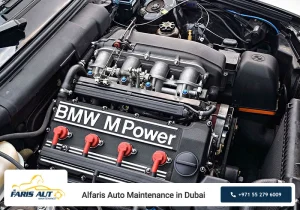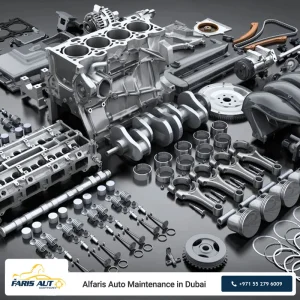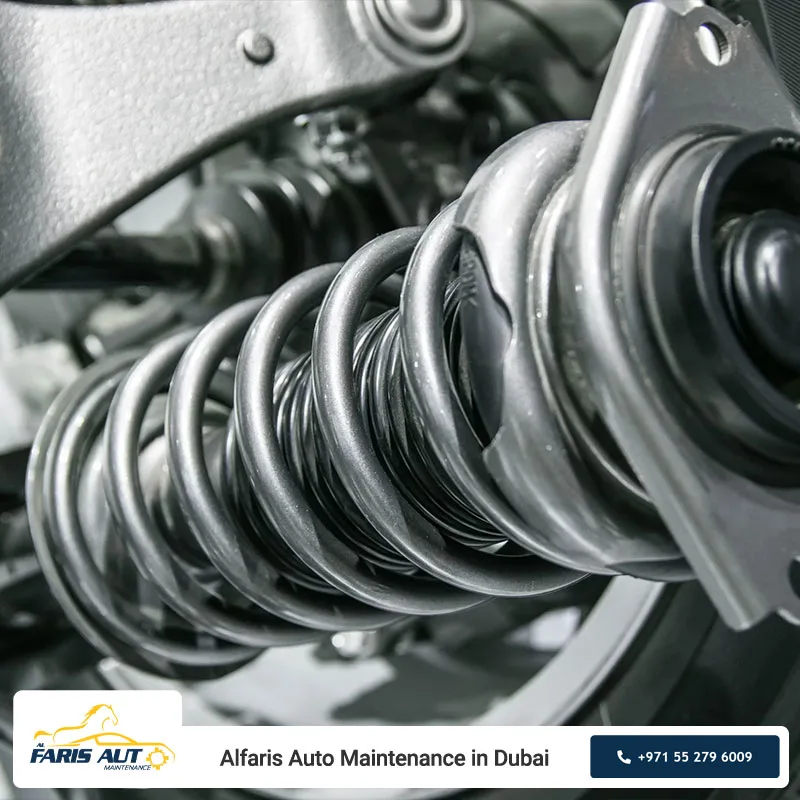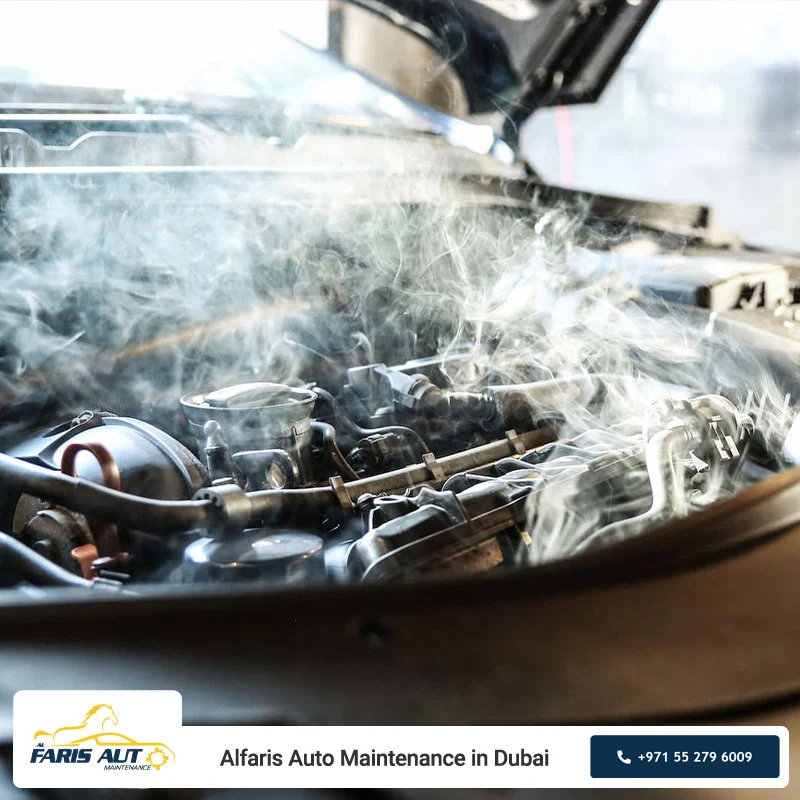Understanding the types of car engines is essential because the engine’s role is to convert fuel energy into mechanical power. The car engine is often referred to as the beating heart of any car, without which movement and transportation would be impossible. The engine’s capacity and type directly influence the car’s performance, fuel consumption, and maintenance costs. Due to significant technological advancements and changes in the automotive industry, knowledge of various types of engines is crucial not only for enthusiasts and drivers but also for mechanics and manufacturers. This article introduces you to The Different Car Engine Types and their unique features, helping you make an informed choice based on your needs.
Car engines come in various shapes and sizes, each type offering distinct advantages and disadvantages. Some engines are designed with a focus on power, others prioritize fuel efficiency, while some aim to reduce emissions. In this article, Alfaris aims to familiarize you with the different types of car engines so that you can drive your vehicle with greater awareness. Understanding your car’s engine and how it operates helps in better maintenance and care. helps you make better decisions when purchasing, maintaining, or designing cars. In the following sections, we will define the car engine more precisely and explore its classification based on cylinder count, fuel type, and mechanical structure.
- What Is a Car Engine?
- Types of Car Engines Based on Cylinder Count
- Types of Car Engines Based on Fuel Type
- Types of Car Engines Based on Mechanical Structure
- Conclusion on the kinds of car engines
What Is a Car Engine?
the types of car engines, also known as an internal combustion engine (ICE), is a device that converts the chemical energy stored in fuel into mechanical energy through combustion. This mechanical energy is then transmitted to the wheels, enabling the car to move. Simply put, the engine acts as a converter that transforms the chemical energy of fuel into kinetic energy, powering the car’s movement. The quality of The Different Car Engine Types design, construction, and performance greatly affects the car’s overall efficiency. A more powerful engine can provide better acceleration but usually consumes more fuel. Conversely, smaller, fuel-efficient engines are better suited for urban driving and economical use.
The process of converting energy into motion in a car engine usually involves internal combustion, where fuel and air ignite inside the cylinders. In gasoline engines, this ignition occurs through spark plugs, while in diesel engines, combustion happens due to high pressure and temperature. This explosion moves the pistons and rotates the crankshaft, which then transfers power through the gearbox to the wheels. Any disruption in this process can cause problems. If you notice any issues, visit a reputable and authorized repair shop promptly. Alfaris offers engine repair services for all types of vehicles. For address and contact details, please visit Alfaris’s Contact page.
Types of Car Engines Based on Cylinder Count

One of the primary ways to classify types of car engines is by the number of cylinders, as this affects power, fuel consumption, and engine noise. Cylinders are chambers where combustion takes place, and generally, more cylinders mean more power. Below is an overview of engines by cylinder count:
- Two-Cylinder Engines: Mostly found in motorcycles and motorbikes, two-cylinder engines have limited power and capacity. They are rarely used in passenger cars and are mainly suitable for lightweight cars requiring low power.
- Three-Cylinder Engines: Common in small city cars and hatchbacks, these engines consume less fuel and weigh less. Due to their odd number of cylinders, they may generate more vibration, but turbocharging technology has improved their performance, making them ideal for economical cars.
- Four-Cylinder Engines: The most popular engine type in mid-sized passenger cars, four-cylinder engines offer a good balance between power, fuel efficiency, and cost. Most family cars use this engine type.
- Five-Cylinder Engines: Among the kinds of car engines, this rare type appears in some older Volvo and Audi models, combining features of four- and six-cylinder engines.
- Six-Cylinder Engines: Commonly found in luxury and sports cars, six-cylinder engines offer significant power. They are available in inline and V-shaped configurations and can be equipped with turbochargers for enhanced performance.
- Eight, Ten, and Twelve-Cylinder Engines: These engines are designed for high-performance and racing cars. V8, V10, and V12 engines are used in super sports and large luxury cars, delivering tremendous power but higher fuel consumption and maintenance costs.
Each engine type has its pros and cons. Engines with fewer cylinders generally provide better fuel economy and lower repair costs but less power. Engines with more cylinders offer excellent power but come with increased fuel consumption and maintenance expenses.
Types of Car Engines Based on Fuel Type
Another way to categorize types of car engines is by the type of fuel they use, each with distinct characteristics and applications:
- Gasoline Engines
These are the most common engines in passenger cars. Gasoline engines produce energy by combusting petrol and are favored for their fast combustion speed and satisfactory power output. For example, cars like the Toyota Prado commonly use gasoline engines. - Diesel Engines
Running on diesel fuel, these engines are known for higher efficiency and torque. They are mainly used in heavy cars, trucks, and SUVs due to their better fuel economy and durability compared to gasoline engines. - Gas Engines (CNG, LPG)
Engines powered by compressed natural gas (CNG) or liquefied petroleum gas (LPG) reduce fuel costs and emissions. Compared to gasoline and diesel engines, these are more environmentally friendly and produce fewer pollutants. - Hybrid and Electric Engines
Hybrid engines combine gasoline and electric motors to reduce fuel consumption and emissions. The kinds of car engines also include fully electric engines, which enable vehicle movement using powerful batteries without relying on fossil fuels. Nowadays, the variety of car engine types is extensive, and sometimes multiple types are combined. This makes diagnosing issues more complex. For professional troubleshooting and repair in Dubai, you can rely on Alfaris’s car repair services.
Types of Car Engines Based on Mechanical Structure

The mechanical structure of the types of car engines is another important classification factor.. The cylinder arrangement impacts the engine’s size, balance, and power:
- Inline Engines
Cylinders are arranged in a straight line. This simple design is common in four- and six-cylinder engines. Its advantages include simplicity, lower cost, and easier maintenance, though it requires more longitudinal space. - V-Shaped Engines
Cylinders are arranged in two banks forming a V shape. This compact structure allows for high power and torque output. V6 and V8 engines typically use this layout. - Boxer (Flat) Engines
The cylinders are arranged in two opposing rows in a horizontal layout. In this type of car engine, the design provides good balance to the engine and helps keep the vehicle’s center of gravity low. Well-known examples of this are Subaru and Porsche engines.” - W-Shaped Engines
These engines combine two V engines side by side, supporting up to twelve or more cylinders. W12 engines are found in luxury and ultra-luxury cars and deliver very high power.
We are pleased to inform you that no matter what type of engine you have issues with, Alfaris’s specialized team in Dubai, equipped with expert staff and the latest tools, is ready to diagnose and fix any problems in your vehicle. One of our specialized services is engine and transmission repair services.
Conclusion on the kinds of car engines
Understanding the types of car engines and their differences allows you to make the best choice based on your needs, budget, and car usage. Engines with fewer cylinders suit city driving and fuel economy, while multi-cylinder engines are preferred for luxury and sports cars. Moreover, the choice of fuel and engine type significantly affects fuel consumption and emissions.
New technologies, such as hybrid and electric engines, are leading the way toward reduced fuel consumption and environmental protection, shaping the future of the automotive industry. Whether you plan to buy, repair, or upgrade a car, a thorough understanding of the types of car engines will help you make smart, informed decisions.




